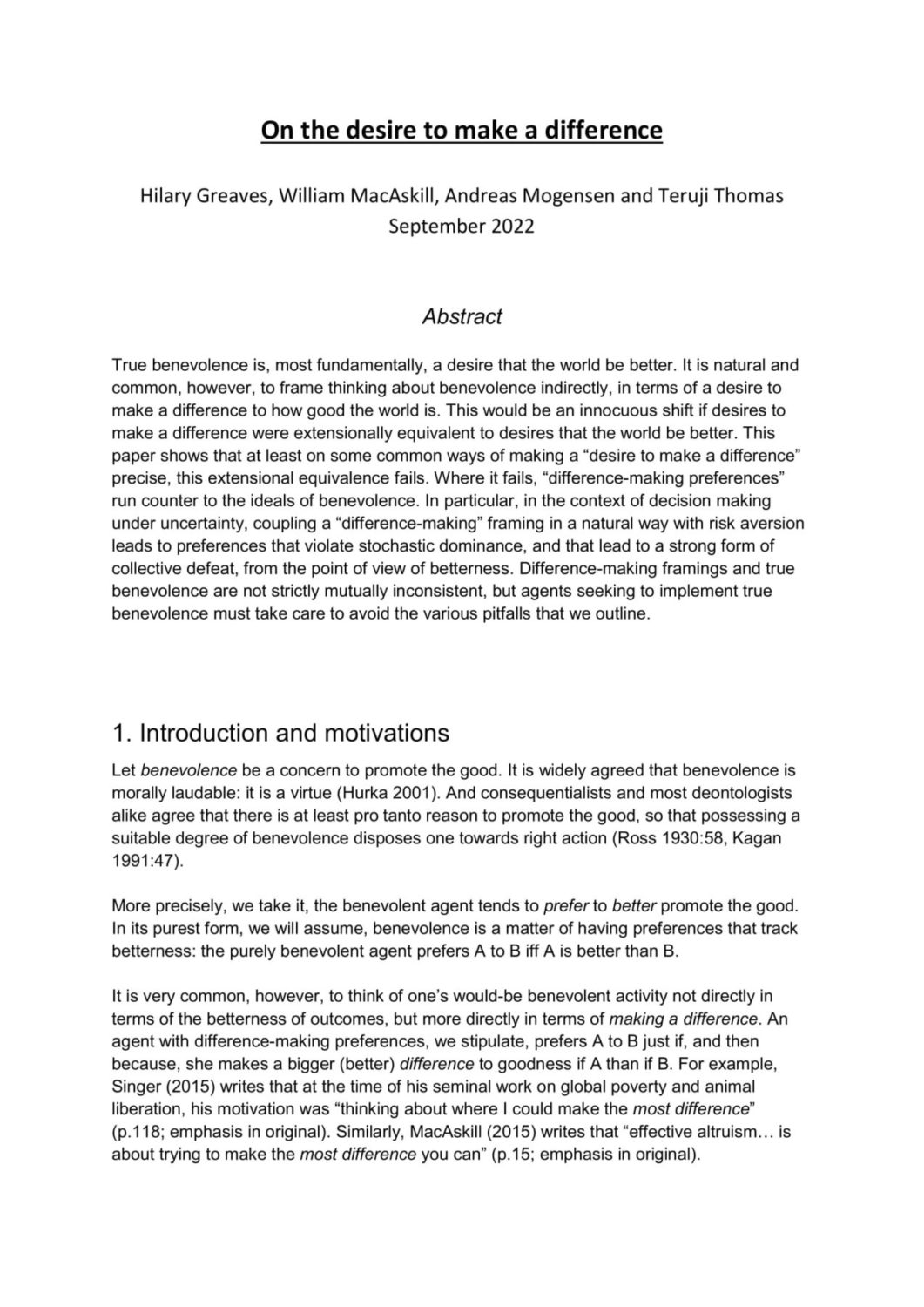On the desire to make a difference
Hilary Greaves, William MacAskill, Andreas Mogensen and Teruji Thomas (Global Priorities Institute, University of Oxford)
GPI Working Paper No. 16-2022, forthcoming in Philosophical Studies
True benevolence is, most fundamentally, a desire that the world be better. It is natural and common, however, to frame thinking about benevolence indirectly, in terms of a desire to make a difference to how good the world is. This would be an innocuous shift if desires to make a difference were extensionally equivalent to desires that the world be better. This paper shows that at least on some common ways of making a “desire to make a difference” precise, this extensional equivalence fails. Where it fails, “difference-making preferences” run counter to the ideals of benevolence. In particular, in the context of decision making under uncertainty, coupling a “difference-making” framing in a natural way with risk aversion leads to preferences that violate stochastic dominance, and that lead to a strong form of collective defeat, from the point of view of betterness. Difference-making framings and true benevolence are not strictly mutually inconsistent, but agents seeking to implement true benevolence must take care to avoid the various pitfalls that we outline.
Other working papers
Calibration dilemmas in the ethics of distribution – Jacob M. Nebel (University of Southern California) and H. Orri Stefánsson (Stockholm University and Swedish Collegium for Advanced Study)
This paper presents a new kind of problem in the ethics of distribution. The problem takes the form of several “calibration dilemmas,” in which intuitively reasonable aversion to small-stakes inequalities requires leading theories of distribution to recommend intuitively unreasonable aversion to large-stakes inequalities—e.g., inequalities in which half the population would gain an arbitrarily large quantity of well-being or resources…
Existential risk and growth – Leopold Aschenbrenner (Columbia University)
Human activity can create or mitigate risks of catastrophes, such as nuclear war, climate change, pandemics, or artificial intelligence run amok. These could even imperil the survival of human civilization. What is the relationship between economic growth and such existential risks? In a model of directed technical change, with moderate parameters, existential risk follows a Kuznets-style inverted U-shape. …
Prediction: The long and the short of it – Antony Millner (University of California, Santa Barbara) and Daniel Heyen (ETH Zurich)
Commentators often lament forecasters’ inability to provide precise predictions of the long-run behaviour of complex economic and physical systems. Yet their concerns often conflate the presence of substantial long-run uncertainty with the need for long-run predictability; short-run predictions can partially substitute for long-run predictions if decision-makers can adjust their activities over time. …

